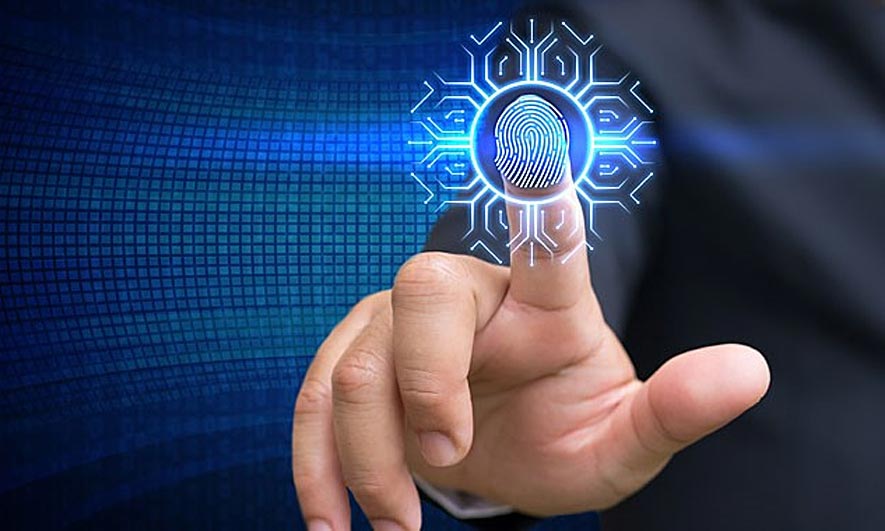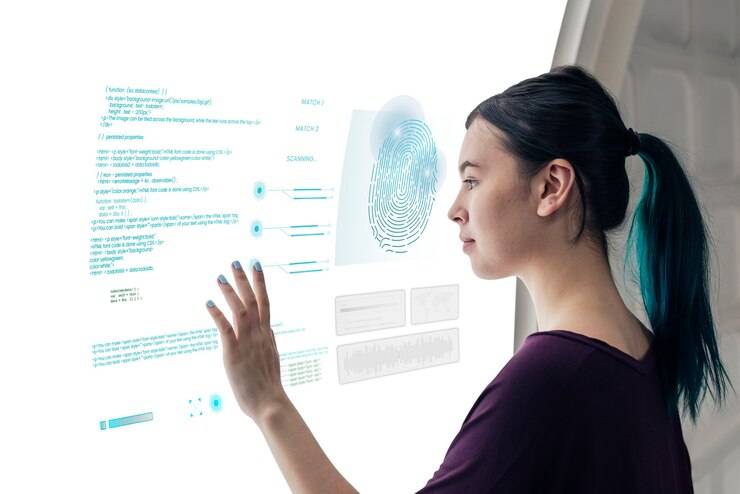Biometrics can be a threat to privacy due to the potential misuse of personal data. The technology raises concerns about data security and unauthorized access.
Biometrics, such as fingerprints and facial recognition, are increasingly used for identification and security purposes. While they offer convenience and enhanced security, their use raises serious privacy and data protection issues. The collection and storage of biometric data could be vulnerable to cyberattacks, leading to potential identity theft or unauthorized access.
Moreover, there are concerns about the misuse of biometric information for surveillance or tracking individuals without their consent. As such, while biometrics offer many benefits, the potential impact on privacy must be carefully considered and addressed to ensure the protection of individuals’ personal information.
The Rise Of Biometric Technology
Biometric technology has seen a rapid rise in recent years, revolutionizing the way we interact with devices and access secure locations. From using our fingerprints to unlock smartphones to facial recognition systems at airports and other commercial establishments, biometrics have seamlessly integrated into our everyday lives. While the convenience and efficiency of biometric technology are undeniable, it also raises concerns about privacy and security.
Evolution Of Biometric Technology
The evolution of biometric technology has been marked by remarkable advancements, making it more accurate and user-friendly. From the traditional fingerprint recognition to the more sophisticated iris and facial recognition systems, biometrics continuously push the boundaries of innovation. As technology continues to evolve, emerging biometric modalities such as vein pattern recognition and gait analysis are gaining traction, offering even more robust authentication methods.
Applications Of Biometrics In Daily Life
Biometric technology has permeated various aspects of daily life, offering convenient and secure solutions. One of the most common applications is in the realm of personal devices, where fingerprint and facial recognition allow quick and secure access to smartphones, laptops, and other gadgets. Moreover, biometrics play a crucial role in ensuring secure access to sensitive areas such as office buildings, laboratories, and government facilities. Additionally, biometric authentication is increasingly integrated into financial services, enhancing the security of online transactions and banking activities.

Credit: www.thehartford.com
Privacy Concerns And Ethical Implications
The adoption of biometric technology has raised important concerns in terms of individual privacy and ethical issues. While biometrics offer a convenient and secure way to authenticate identities, the collection and handling of sensitive biometric data have sparked a debate regarding their potential impact on personal privacy and ethical implications.
Collection And Storage Of Sensitive Biometric Data
The process of collecting and storing sensitive biometric data, such as fingerprints, iris patterns, and facial recognition, raises significant privacy concerns. Individuals may feel uneasy about the prolonged storage of their unique biometric identifiers, fearing the potential misuse of this information.
Additionally, the centralization of biometric data in large databases poses a threat to individuals’ privacy, as it becomes susceptible to unauthorized access or breaches, compromising the security of this sensitive information.
Potential Misuse And Security Threats
The possibility of misuse and security threats associated with biometric data remains a critical concern. Biometric identifiers, once compromised, cannot be changed like other forms of identification, increasing the vulnerability of individuals to identity theft and fraudulent activities.
- Unauthorized access to biometric databases can result in identity theft, leading to severe consequences for affected individuals.
- Inadequate security measures in place for biometric systems can expose individuals to potential breaches and data leaks, jeopardizing their privacy rights.
Legal And Regulatory Frameworks
In the modern digital landscape, concerns about the privacy implications of biometric data have become increasingly prominent. As such, examining the legal and regulatory frameworks surrounding biometrics is crucial to understand the accompanying privacy challenges.
Current Laws And Regulations Regarding Biometric Data
Current laws and regulations play a pivotal role in overseeing the collection, storage, and use of biometric data. Various countries and regions have enacted specific legislation to address this issue. For instance, the European Union’s General Data Protection Regulation (GDPR) outlines stringent guidelines related to the processing of biometric data. In the United States, several states, such as Illinois and Texas, have implemented their own biometric privacy laws (e.g., the Biometric Information Privacy Act in Illinois), which impose rigorous requirements on organizations utilizing biometric identifiers.
Compliance And Enforcement Challenges
Compliance and enforcement challenges have emerged as significant hurdles in ensuring adherence to biometric data regulations. Organizations must navigate complex legal landscapes and address varied interpretations of the laws across different jurisdictions. Biometric data breaches can lead to substantial legal consequences, thereby underscoring the importance of robust compliance mechanisms. Furthermore, the dynamic nature of technology often outpaces regulatory frameworks, presenting ongoing challenges for enforcement agencies.
Mitigating Privacy Risks
Biometric technology has raised concerns about privacy risks. However, there are measures that can be taken to mitigate these concerns and protect individuals’ privacy. From ethical considerations in biometric development to safeguards and best practices for biometric data protection, it’s crucial to address these issues proactively.
Ethical Considerations In Biometrics Development
Developers of biometric technology must prioritize ethical considerations to ensure that privacy rights are protected. Transparency in the collection and use of biometric data is paramount. Informed consent should be obtained from individuals whose biometric data is being collected, and they should have the right to know how their data will be used and stored. Additionally, accountability is essential, and there should be mechanisms in place to hold organizations accountable for the ethical use of biometric data.
Safeguards And Best Practices For Biometric Data Protection
Implementing robust security measures is critical to safeguard biometric data from unauthorized access or misuse. Encryption and strong access controls should be employed to protect biometric templates and prevent data breaches. Furthermore, data minimization should be practiced to limit the amount of biometric data stored, reducing the risk of exposure. Regular security audits and compliance assessments can help identify and address any vulnerabilities in biometric systems, ensuring continuous protection of individuals’ privacy.
Frequently Asked Questions Of Are Biometrics Bad For Privacy?
Are Biometrics A Threat To Privacy?
Biometrics can pose a threat to privacy if not properly secured. Personal information stored in biometric databases can be at risk of unauthorized access. However, with proper encryption and security measures, biometrics can be used in a privacy-friendly manner.
What Are The Negative Effects Of Biometrics?
Biometrics can lead to privacy concerns and potential security risks. Inaccurate readings may cause inconvenience. Additionally, there are ethical worries about consent and data protection. It’s also possible for biometric data to be stolen or replicated, leading to identity theft.
What Is The Main Drawback Of Biometrics?
The main drawback of biometrics is potential security breaches due to theft or misuse of biometric data.
Why Is Biometrics Not Good?
Biometrics may have privacy and security concerns, such as hacking and data breaches. Errors can also occur, leading to access denials.
Conclusion
In light of these considerations, it’s clear that biometrics present both opportunities and challenges for privacy. While they offer enhanced security and convenience, concerns about potential misuse and breaches of personal data remain prevalent. Ultimately, striking a balance between security and privacy will be crucial as we continue to navigate the digital landscape.

